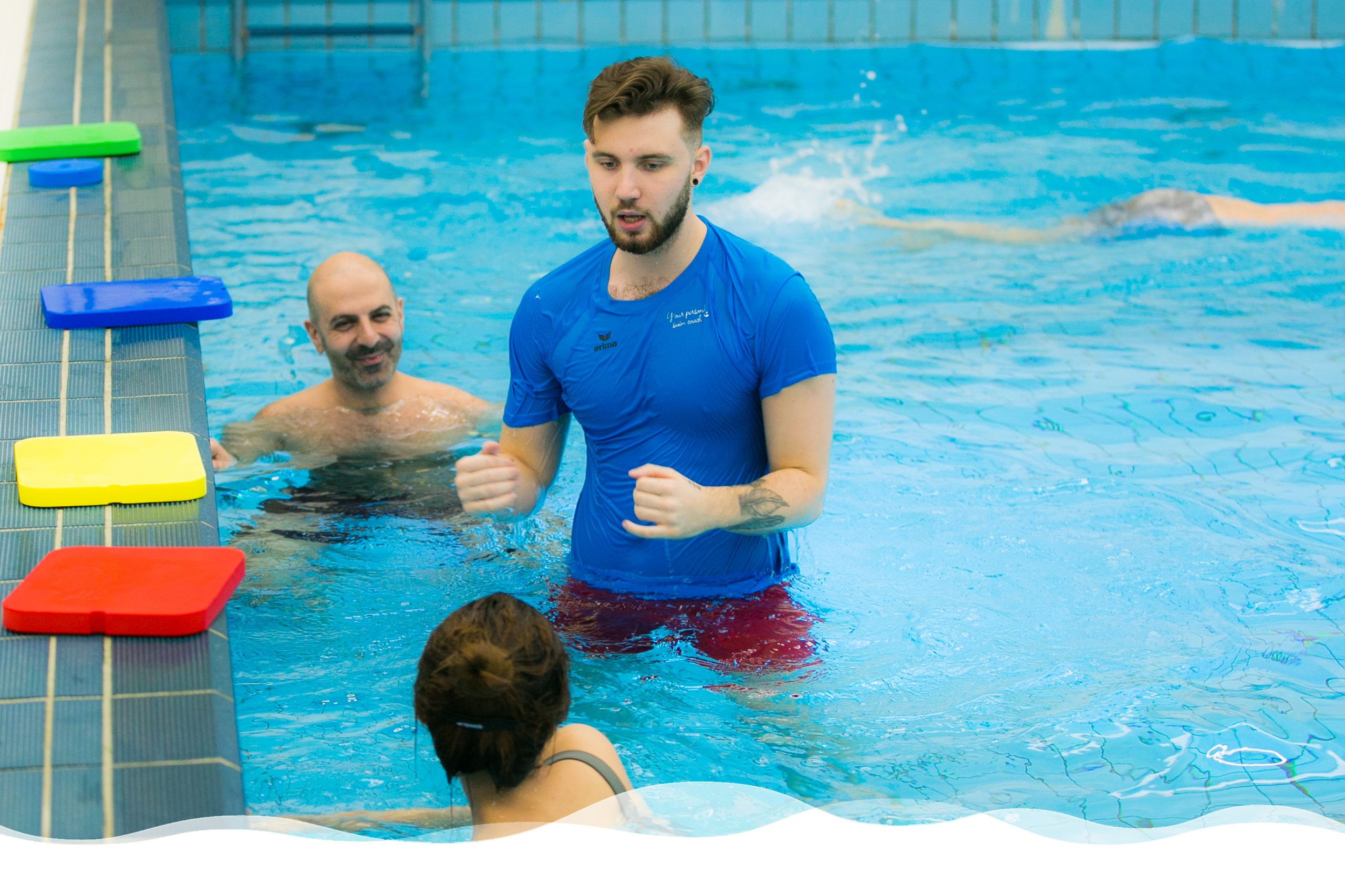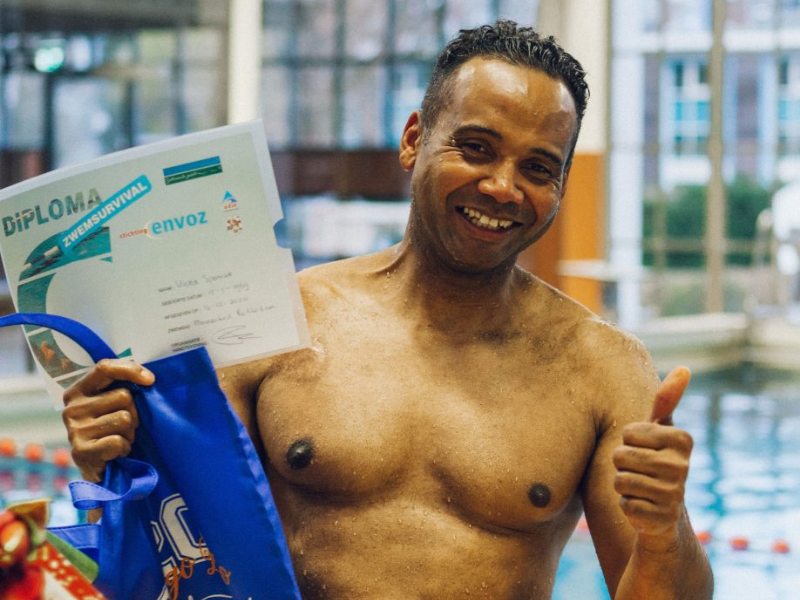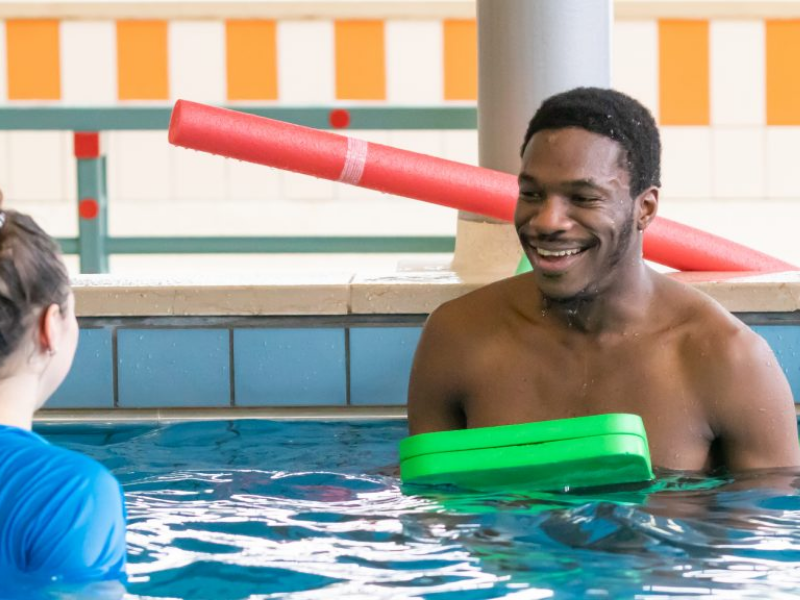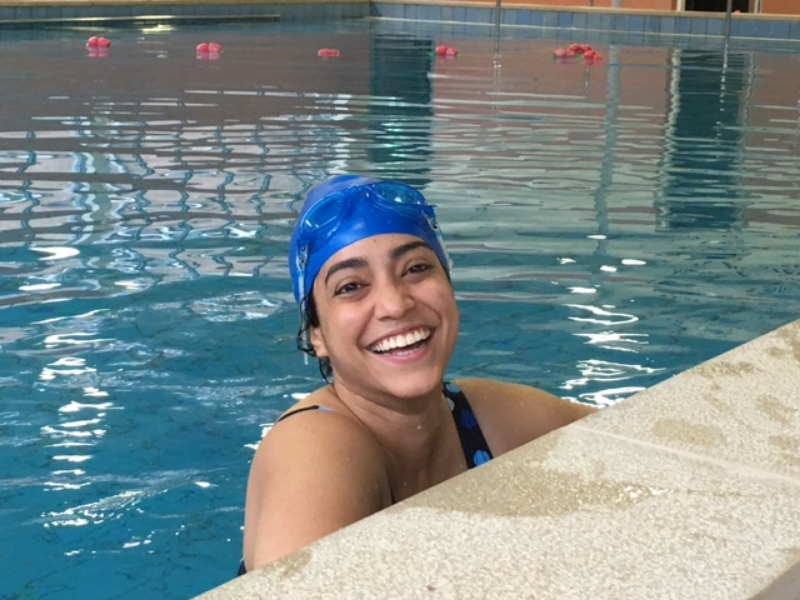Swimming during corona times
How likely it is to get Covid-19 if you swim in a swimming pool?
Staying healthy these days comes down to, not just keeping away from COVID-19 but also maintaining vitality and ensuring your immune system is strong. Since we all love our weekly swim, the question on everyone’s lips is: Can you catch the coronavirus from a swimming pool?
Following normal procedures, chlorine is added to pool water since it kills germs, including viruses. The amount of chlorine in the water needs to be properly maintained for its disinfectant qualities to be effective. Therefore, lifeguards and pool managers test chlorine and pH levels throughout the day and adjust as needed.
What is Chlorine?
Chlorine is a naturally occurring chemical in nature, with the atomic number 17. The most common form of chlorine is sodium chloride, which as you may remember from your high school chemistry days, is table salt.
The key to how chlorine sanitizes a pool lies in how it interacts with the water itself. When chlorine is added to water, it forms a weak acid called hypochlorous acid. Because most bacteria cells, such as those found in E. coli, are negatively charged and hypochlorous acid is neutrally charged, the hypochlorous acid penetrates the bacteria and oxidizes its protein cells, which break the bacteria down. It’s the combination of chlorine and water that kills harmful microorganisms commonly found in swimming pools.
Although chlorine is the single most important component in terms of taking care of a pool, it is not independent from the other components of the pool water. The degree to which chlorine is effective in sanitizing a pool by breaking down contaminants, is highly correlated to the degree to which the pH is kept in balance.
As of now, there is no evidence that the coronavirus spreads through pool water. According to Amesh Adalja, state MD and infectious disease expert in Maryland, USA, “The coronavirus doesn’t survive in chlorinated water”. Additionally, CDC (Centers for Disease Control and Prevention in USA ) also confirm that pool water is not a likely vector of transmission saying, “Proper operation and maintenance (including disinfection with chlorine and bromine) of these facilities should inactivate the virus in the water.” A WTAG spokesperson also said, “The available evidence shows that the physical effect of the pool water and an appropriate relationship between free chlorine and pH value should inactivate the virus within 15-30 seconds. The dilution of virus in the pool water volume will also reduce the risk of exposure and transmission.”
How likely it is to get Covid-19 if you swim in a swimming pool?
Staying healthy these days comes down to, not just keeping away from COVID-19 but also maintaining vitality and ensuring your immune system is strong. Since we all love our weekly swim, the question on everyone’s lips is: Can you catch the coronavirus from a swimming pool?
Following normal procedures, chlorine is added to pool water since it kills germs, including viruses. The amount of chlorine in the water needs to be properly maintained for its disinfectant qualities to be effective. Therefore, lifeguards and pool managers test chlorine and pH levels throughout the day and adjust as needed.
What is Chlorine?
Chlorine is a naturally occurring chemical in nature, with the atomic number 17. The most common form of chlorine is sodium chloride, which as you may remember from your high school chemistry days, is table salt.
The key to how chlorine sanitizes a pool lies in how it interacts with the water itself. When chlorine is added to water, it forms a weak acid called hypochlorous acid. Because most bacteria cells, such as those found in E. coli, are negatively charged and hypochlorous acid is neutrally charged, the hypochlorous acid penetrates the bacteria and oxidizes its protein cells, which break the bacteria down. It’s the combination of chlorine and water that kills harmful microorganisms commonly found in swimming pools.
Although chlorine is the single most important component in terms of taking care of a pool, it is not independent from the other components of the pool water. The degree to which chlorine is effective in sanitizing a pool by breaking down contaminants, is highly correlated to the degree to which the pH is kept in balance.
As of now, there is no evidence that the coronavirus spreads through pool water. According to Amesh Adalja, state MD and infectious disease expert in Maryland, USA, “The coronavirus doesn’t survive in chlorinated water”. Additionally, CDC (Centers for Disease Control and Prevention in USA ) also confirm that pool water is not a likely vector of transmission saying, “Proper operation and maintenance (including disinfection with chlorine and bromine) of these facilities should inactivate the virus in the water.” A WTAG spokesperson also said, “The available evidence shows that the physical effect of the pool water and an appropriate relationship between free chlorine and pH value should inactivate the virus within 15-30 seconds. The dilution of virus in the pool water volume will also reduce the risk of exposure and transmission.”
WHO statement
The Pool Water Treatment Advisory Group (PWTAG) confirm as well, “the coronavirus would be inactivated at the levels of chlorine used in swimming pools.” Institutions such as the World Health Organisation (WHO) and the Centre for Disease Control and Prevention (CDC) have also made similar statements stating, “Swimming in a well maintained, properly chlorinated pool is safe.”
Many public pools want swimmers to arrive in their swim suits in order to cut down on locker room time. That is for a reason. Since the coronavirus travels in air droplets, there can be crowded conditions and common touch surfaces (like the deck and the locker room) that may provide an opportunity for the virus to transmit. After all, the virus can linger for hours on hard surfaces so be sure to wash your hands well after touching handrails, counters, or other hard surfaces before and after swimming. It goes without saying that all pools are aware of this, therefore all areas are disinfected before and after our swim sessions. This effected our timetable last year, but that is a small inconvenience in order to provide a safe environment.
.

National Pool Corona Protocol
All swim school, clubs and pools are obligated to follow the national pool corona protocol. This protocol has been established by cooperating parties in the national swim industry in The Netherlands : Association Employers in pools and swimschools (WiZZ), National Board Swim safety (NRZ), Associaten technical support in the poolindustry (VTZ), Dutch Environment & Water Technology Association (Envaqua), Technical University TU Delft, ENVOZ, HISWA-RECRON, EasySwim, Dutch underwater association (NOB), Dutch Cultural Sport Board (NCS), Dutch Thriatlon Board (NTB), FNV, Vereniging Sportbedrijven Nederland (VSBN), Reddingsbrigade Nederland, ZwemOnderwijs Nederland, Dutch Lifeguards, Vereniging Sport en Gemeenten (VSG) en Royal Swim Board (KNZB).
“Corona virus does not survive in clorine water.”
Diploma system
Your Personal Swim Coach lessons are structured around the Dutch ABC Diploma curriculum. Find out how it works and what all of them entail!
Floating in swimming
The science of swimming. Do people float better in salt water in the sea, or fresh water in the swimming pool? And other questions around floating are answered in this article.
Our adult swim classes
Your Personal Swim Coach will help you become a more confident you, a stronger, fitter and healthier you, a happier, care-free you and ensure your success in learning to enjoy and feel safe in and around water!
Water Intro
Are you unable to swim, scared or challenged? Have you taken lessons before and failed? Or it has been a long time ago?
Stroke Introduction
You are comfortable in shallow water but are not able yet to perform all 4 basic strokes. This level requires you to have passed the introduction program, or you are able to perform a swim a backcrawl, and a single backstroke (froggy leg).
Sport class
Take Your Swimming to the Next Level with Our Sport Class!
For those who have earned their official swim diplomas or advanced swimmers looking for new challenges—our Sport Class is designed for you!



